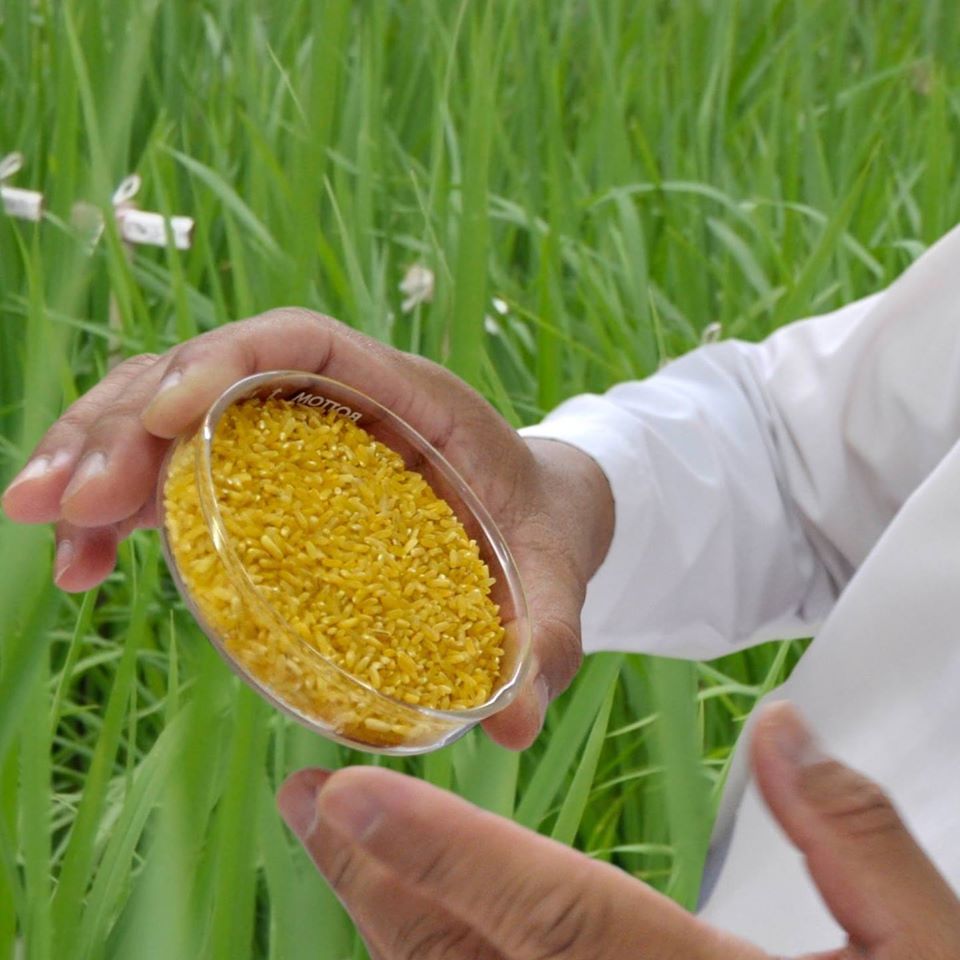With vitamin A deficiency affecting Filipino children and pregnant women, the food-based solution via Golden Rice is welcome news that’s however taking too long to come.
It’s the 16th National Biotechnology Week on Monday and the controversial Golden Rice still has a long way to go, says the Philippine Rice Research Institute (PhilRice). PhilRice senior science research specialist Reynante Ordonio estimates that the product will be commercially available by 2023 given the lengthy approval process. Ordonio notes that the Philippines is on equal footing with Bangladesh, which is also developing Golden Rice.
Golden Rice was approved for direct use as food, feed or processing (FFP) in December and is now in the 60-day public comment period—the last step before the release of permit to propagate, after which it is considered for official registration and evaluation for its proposed commercial production. However, varietal registration where seeds would be propagated for testing and survey in various provinces still has to take place. These provinces include Quirino, Catanduanes and Samar.
Golden Rice is designed to be an accessible food-based solution to vitamin A deficiency that affects preschool children and pregnant women in the Philippines. Public health programs such as oral supplementation, complementary feed, and nutrition education still leave 17 percent of Filipino children aged five and below with vitamin A deficiency. Fortunately, the beta-carotene present in this rice variety should cover 30 to 50 percent of the vitamin A requirement needed by pregnant women and preschool children.





